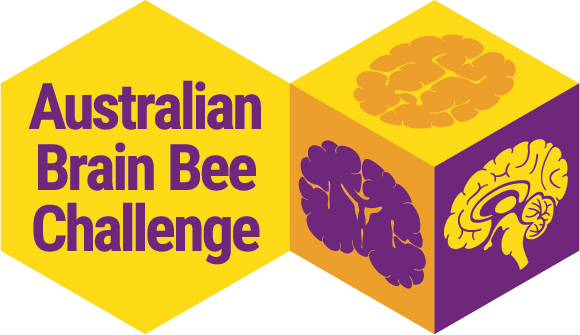You can help progress our research
You don't have to be a scientist to get involved with QBI. We offer a range of opportunities for everyday people to connect and progress our research and discoveries.
The foundation for all of our work is the funding we receive through a range of sources, including philanthropic donations from our generous supporters. There are many ways to give to QBI: directly, through planned giving, or holding fundraising events that entertain or challenge supporters as they dig deep to help us better understand the brain.
We also offer opportunities for students to learn directly from our inspiring researchers through lab placements, and for community members to tour our facilities and attend events. Finally, you can give one of the greatest gifts of all by volunteering for studies to advance treatments and diagnostics for brain diseases and disorders.
How you can support us
What your donations fund
Through your support you are helping QBI solve the major neurological health challenges facing our community today

World leading research

Brightest scientific minds

Solutions to global health challenges
Brain Research Endowment Fund
Find out more Donate to research
QBI’s Brain Research Endowment Fund supports scientists exploring the unknown, which will guide new research on finding cures for diseases or improving quality of life.
Community & school programs

Australian Brain Bee
The Australian Brain Bee Challenge (ABBC) is a competition for high school students in year 10 to learn about the brain and its functions, learn about neuroscience research, find out about careers in neuroscience and to dispel misconceptions about neurological and mental illnesses.
Participate in a research study
By being part of our human research studies you can make a valuable contribution to improving the lives of people living with brain disease and disorder.
Research in action
- 14 Mar 2019Dr Dorit Kliemann
Postdoctoral Fellow in Professor Ralph Adolph’s Emotion and Social Cognition lab
Caltech - PhD StudentQueensland Brain Institute and School of Chemistry and Molecular Biosciences
Thorpe
Our team has a strong record of research impact seen in legislation and policy change. We also seek to transfer our discoveries to achieve impact through development of information resources for parents and professionals working with young children. Team lead, Karen Thorpe has twice (2013, 2019) been named by the Australian Financial Review as among Australia’s 100 Women of Influence for translation of her research into public policy. She is a board member of the Australian Research Alliance for Children and Youth and chairs Evidence for Learning’s National Early Education Reference group.
Group Leader
Professor Karen Thorpe
ARC Australian Laureate Fellow - Group LeaderQueensland Brain InstituteResearcher profile is public:1Supervisor:Researcher biography:Karen Thorpe is Australian Research Council, Laureate Professor and Group Leader in Child Development, Education and Care at the Queensland Brain Institute, University of Queensland. Her research is grounded in the understanding that early learning experiences shape brain development and are critical in establishing trajectories of health, social inclusion and learning across the lifespan. A particular focus of her work is early care and education environments including parenting, parent work, quality of care and education, and the early years workforce.
Karen leads a multi-disciplinary team of developmental scientists undertaking large scale longitudinal studies with embedded studies to explicate mechanisms that enable or limit children's life chances. She was Foundation Psychologist on the Avon Longitudinal Study of Parents and Children at the University of Bristol, UK; led the evaluation of the Preparing School Trial for Queensland Government; led the Queensland team of the E4Kids study of quality in Australian Early Education and Care and a recent data linkage project with Queensland Government to track participants through their school journey. In partnership with Queensland Government, Goodstart Early Learning and the Creche and Kindergarten Association she led a large population study of the Australian ECEC workforce (ARC Linkage). Her current research, as a chief investigator on the ARC Centre of Excellence for Children and Families across the life course, and through an ARC Laureate fellowship, is to examine barriers to providing high quality early learning services in developmentally vulnerable communities.
In 2013 and again in 2019 Karen was named by the Australian Financial Review as among Australia's 100 Women of Influence for the impacts of her research on educational and family policy. In 2020 she was recognised by Australian Government, Advance Global Awards for her international contribution to education. Karen chairs the Australian Early Years Reference Council for Evidence for Learning, Australia whose remit is to build a strong evidence-base in early childhood education and care with focus on translation into policy and practice. She is also director on the board of the Australian Research Council for Children and Youth and advisor to the national board of Beyond Blue – Be You.
Body: Professor Karen Thorpe: Child Development, Education and Care
Professor Karen Thorpe: Child Development, Education and CareThe Thorpe group seek to understand the effects of early life experiences on trajectories across the life course. Their focus is on the first five years of life, a formative period in human brain development in which the quality of experiences, and particularly social interactions, shape brain architecture. The group work with government and non-government agencies to inform child and family policy and practice strategies that improve children’s development and learning.
Research Members
Associate Professor Sally Staton
ARC DECRA Research FellowQueensland Brain InstituteResearcher profile is public:1Supervisor:Researcher biography:Dr Sally Staton is a Senior Research Fellow in the Science of Learning Research Centre at the Queensland Brain Institute, UQ. Dr Staton has a strong commitment to research that can inform and ensure positive early life experience for all children. Her research focuses on the role of early education and care settings in supporting young children's immediate and on-going social-emotional, cognitive and physical development. Dr Staton's research spans a range of study designs and methodologies, including evaluation studies in educational settings (applying randomised control trial and quasi-experimental designs), longitudinal studies tracking large child cohorts (>2000 children), standard observation techniques (in vivo and video), survey and individualised standard child assessment (using educational and psychological measures), as well as studies employing physiological (cortisol, actigraphy, heart rate variability) and qualitative (child, educator and parent interviews, socio-metric) designs. She has a particular expertise in the development, application and interpretation of observational measurement for educational practices and teacher-child interactions in education contexts, including early childhood settings. Dr Staton has a strong track record in research translation and community engagement, including delivery of reports for government and non-government organisations, professional development packages for early childhood professionals and teachers, presentations, workshops, videos and articles for parents, government regulatory officers and the early childhood sector. In 2016, she was named among Queensland's Young Tall Poppy Scientists for her contribution to science translation and engagement. In 2019 her succesful research partnerships with industry and government was acknowledged in a Partners in Research Excellence Award from UQ.
Dr Laetitia Coles
Research FellowQueensland Brain InstituteResearcher profile is public:1Supervisor:Researcher biography:Dr Laetitia Coles is a Research Fellow within the Science of Learning Lab at the Queensland Brain Institute, led by Laureate Prof Karen Thorpe. As a mixed-methods applied sociologist, she leads the Workforces component of the Thriving Queensland Kids Brain Builders Initiative (https://qbi.uq.edu.au/brain-builders) in support of the generation, translation, and application of knowledge from neurosciences into policy and practice, as well as leading the award-winning project entitled Families in Focus: Amplifying the voices of children with disability and their families (https://child-health-research.centre.uq.edu.au/event/5632/families-focus), in collaboration with Queensland Children's Hospital. She is committed to undertaking research that helps improve understandings of children's care environments, with a specific focus on supporting those who care for and educate children. Dr Coles' experience in multi-disciplinary research and in industry engagement underpins her strong track record in knowledge and research translation through both traditional and non-traditional research outputs.
Dr Coles completed her PhD in Sociology in 2020, looking at long work hours and fathers' engagement with children and caregiving – particularly focusing on the factors that facilitate participation in caregiving.
Dr Sandy Houen
Research FellowQueensland Brain InstituteResearcher profile is public:1Supervisor:Dr Peter Rankin
Research FellowQueensland Brain InstituteResearcher profile is public:1Supervisor:Researcher biography:Peter is a Research Fellow in Applied Statistics at the Science of Learning Research Centre, Queensland Brain Institute. His research focuses on understanding the mechanisms that enable or limit children's life chances. He plays a crucial role in designing well-structured studies, analysing data, and interpreting results to provide valid and reliable conclusions on how to improve children's opportunities and outcomes.
As an applied statistician, Peter collaborates with an inter-disciplinary team to integrate statistical analyses with qualitative research and contextual knowledge. He brings expertise in identifying and analysing key factors and variables that influence children's life chances. Further, he develops research methodologies, including sampling strategies, data collection methods, and statistical analyses of small- and large-scale data, to understand the complex interplay of factors that contribute to children's opportunities and outcomes. He distills the link between experiences and children's life chances using an array of statistical methods, including longitudinal and multilevel modelling, measurement and psychometrics, causal inference, data science, structural equation modelling, and data visualization. Additionally, he has expertise in uncovering the mediating and moderating factors that influence the relationship between early life experiences and later life chances. By leveraging expertise in statistical analysis and research methodology, Peter's work provides evidence-based insights into the mechanisms that shape children's life chances. This evidence informs research, policy, and interventions aimed at improving children's opportunities and outcomes.
Dr Azhar Potia
ARC Early Career Industry FellowQueensland Brain InstituteResearcher profile is public:1Supervisor:Researcher biography:I am a recipient of the Australian Research Council (ARC) Early Career Industry Fellowship 2023 and currently a Research Fellow at the Queensland Brain Institute (QBI-UQ) and Life Course Centre (LCC-UQ). I previously held a post-doctoral research fellow position (2019-2022) at the Institute for Social Science Research (ISSR). I am a behavioural economist with a strong background in conducting economic, natural experiments (program and policy) and randomised control trial (RCT) evaluations. My research focuses on improving educational and well-being outcomes for Aboriginal and Torres Strait Islander (First Nations) students, and I work closely and collaborate with social organisations to achieve these goals.
My research is grounded in prior experience living and working in regional and remote Indigenous communities in Far North Queensland (Aurukun, Cairns and Hope Vale), where I worked as a program designer and coach addressing community-based financial literacy. This gave me first-hand experience of the community strengths but also systemic barriers to health, education and social inclusion faced by First Nations peoples as specified in the Closing the Gap reform targets. This experience shaped my subsequent research agenda. I am applying my training in behavioural economics to improve student learning and redress social inequity. My focus is education as a mechanism to disrupt disadvantage. I apply experimental design methodologies to identify intervention points across the education pathway where support programs can best enable positive education outcomes. I have an 8-year track record of engagements with industry organisations in designing and evaluating education programs to support First Nations students.
These industry engagements have contributed to my receiving the ARC Industry Fellowship that supports successful educational pathways for First Nation students. The fellowship aims to develop strategies to prevent the steep drop in educational outcomes and disengagement of First Nations students as they transition from primary to secondary school. In collaboration with Indigenous communities, Former Origin Greats (FOGS) Achieving Results Through Indigenous Education (ARTIE) Academy and the Queensland Department of Education (DoE), the fellowship seeks to generate effective culturally embedded support strategies to avert this steep drop.
Dr Emma Cooke
Affiliate Postdoctoral Research FellowQueensland Brain InstituteResearcher profile is public:1Supervisor:Researcher biography:Dr Emma Cooke is a sociologist and Postdoctoral Research Fellow in the Kids Sleep Research Group at UQ's Child Health Research Centre (CHRC). Dr Cooke works with interdisciplinary teams to research the lived experiences of children, educators and families and is particularly interested in sleep, gender, wellbeing, and inequality. Her current research focuses on families’ experiences of having a child or sibling with sleep difficulties and a neurodisability (e.g., Down syndrome). She has expertise in qualitative research, DRAWing (Departing Radically in Academic Writing), and knowledge translation.
As a Research Fellow in the ARC Centre of Excellence for the Digital Child, she has researched educators’ experiences of using Information and Communication Technologies in education settings, and is currently researching technology use around bedtime in children with a neurodisability. When she was based in the Child Development, Education and Care Group at ISSR she worked on the Evaluation of the Queensland KindyLinQ Pilot Program and a range of Early Childhood Education and Care (ECEC) research projects.
In her PhD thesis, Dr Cooke utilised a crystallization methodological framework to gain multifaceted insights into children’s rights, early childhood discourses, and children’s relaxation and unrestful experiences in ECEC. She has extensive experience interviewing children and adults across a range of contexts, and uses different qualitative analysis methodologies, including thematic analysis, discourse analysis, and creative analytical practices. An active member of the DRAW (Departing Radically in Academic Writing) Group, Dr Cooke’s recent academic work is written creatively for impact.
Ms Candice Oakes
Senior Research Project OfficerQueensland Brain InstituteResearcher profile is public:0Supervisor:Students
Narayan Panthi
Postgraduate StudentQueensland Brain InstituteResearcher profile is public:1Supervisor:Charlotte Casey
Postgraduate StudentQueensland Brain InstituteResearcher profile is public:1Supervisor:Dr Bonnie Searle
Postdoctoral Research FellowQueensland Brain InstituteResearcher profile is public:1Supervisor:

